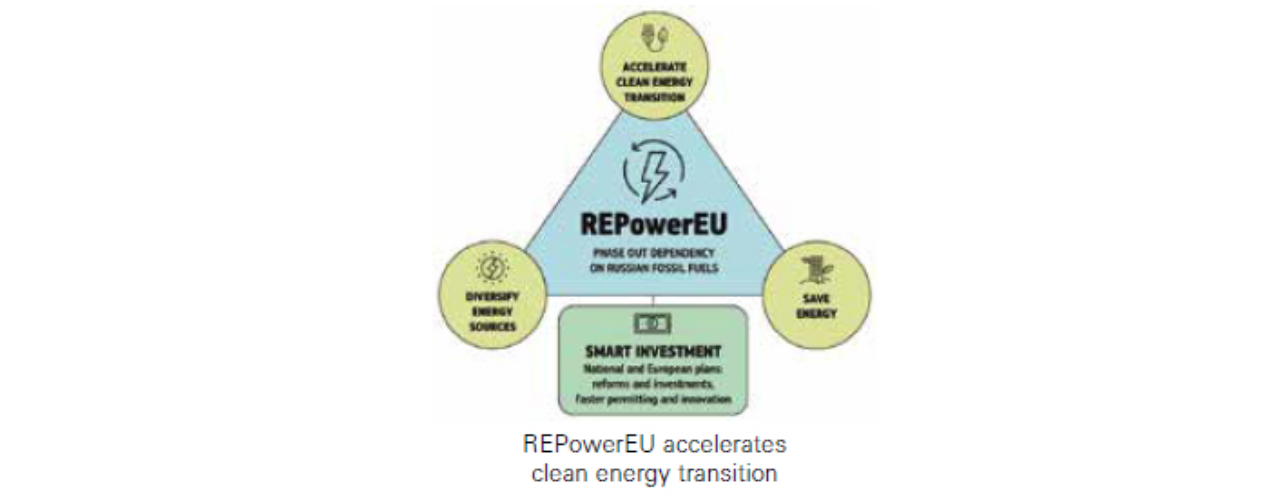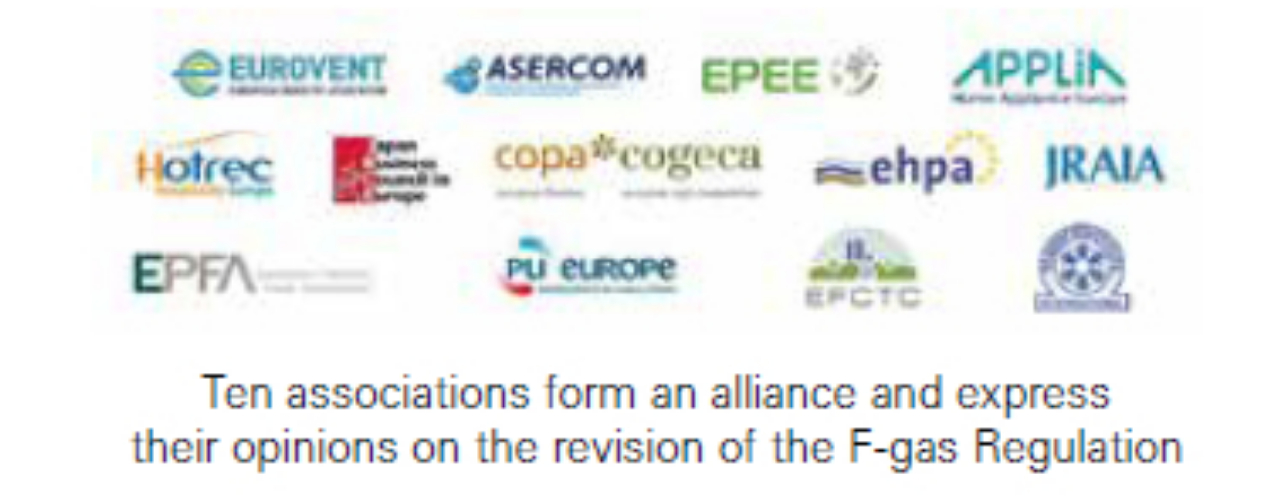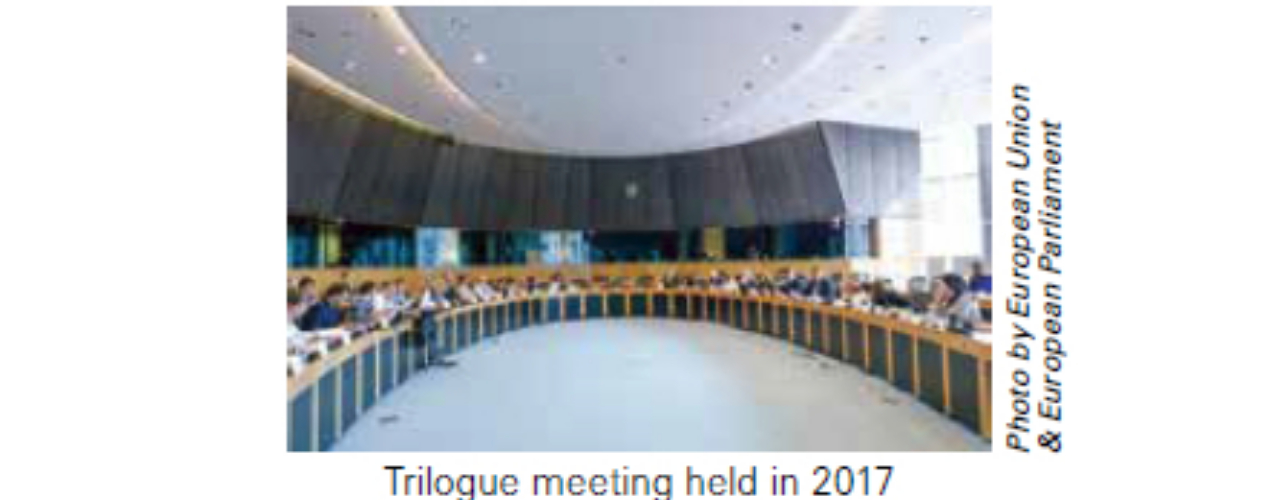
The European Parliament has decided to accelerate the phase-down of fluorinated greenhouse gases (F-gases) and to achieve total phaseout by 2050. This position amounts to a ban on equipment containing F-gases, in some cases as early as 2026.
On March 30, 2023, Members of the European Parliament (MEPs) adopted their position on the revision of the European Union’s (EU’s) legislative framework on F-gas emissions with 426 votes in favor, 109 against, and 52 abstentions.
The aim is to contribute to the EU’s climate neutrality objective. MEPs wish to achieve a steeper phase-down of hydrofluorocarbons (HFCs) on the EU market from 2039 onwards, with a full HFC production and consumption phase-out by 2050. This target would align the updated rules with the EU’s 2050 climate neutrality goal.

The overarching aims of the MEPs’ position are to boost alternative solutions and to tackle illegal activities. To stimulate the uptake of climate-friendly solutions and to provide certainty for consumers and investors, MEPs want to strengthen the requirements that govern the placing on the EU single market of products containing F-gases. MEPs also want illegal trade in F-gases to be better policed, by allowing customs authorities to seize and confiscate F-gases imported or exported in violation of the rules, in line with the upcoming environmental crime directive.
On April 5, the European Council announced that European member states agreed on a mandate for the presidency to start negotiations with the European Parliament on the two European Commission proposals. The negotiating mandate agreed by the member states amends the proposal’s phase-down schedule among other things. Taking heat pumps as an example, the European Council agreed to postpone a number of bans compared with the European Commission’s proposal, in order to put the proposal more in line with the targets set under REPowerEU and proposed to divide the ban on certain split-type heat pumps into an earlier ban for air-to-water (ATW) heat pump systems, for which alternatives are more widely available, and a later ban for air-to-air (ATA) heat pump systems, in which it is more difficult to apply alternatives. To balance this, more quotas for the placing on the market of HFCs are introduced. In addition, the Council added a safety clause to enable the Commission to react, through delegated acts, to release a limited number of additional quotas if the proposed bans were to endanger the attainment of the heat pump deployment target required under REPowerEU.

Following this announcement, an alliance of 10 leading European associations and global partners responded on April 6. The alliance consists of Home Appliance Europe (APPLiA), Air conditioning and Refrigeration European Association (AREA), the Association of European Refrigeration Component Manufacturers (ASERCOM), the European Fluorocarbons Technical Committee (EFCTC), European Heat Pump Association (EHPA), the European Partnership for Energy and the Environment (EPEE), the European Phenolic Foam Association (EPFA), Japan Business Council in Europe (JBCE), the Japan Refrigeration and Air Conditioning Industry Association (JRAIA), and PU Europe.
The alliance commented that while some market prohibitions are postponed, its concern with the lack of granularity remains. The bans must account for the various applications, in particular multi-family and industrial buildings, and environments in which equipment is installed. These systems are not ‘one size fits all’ and failure to be precise will lead to complications implementing the regulation at best, and serious safety risks at worst. It is critical that time is allowed to ensure widespread technician training and certification to avoid accidents involving systems with alternative refrigerants, and that periodic inspections and leak checks take place to ensure safe and energy-efficient operation. Regarding the phasedowns, the risk of a shortage of refrigerant remains as there is not enough quota added to support the postponement of some equipment bans. The safety clause for heat pump deployment is well noted, but the process for releasing additional quantities and inclusion of a maximum value still causes serious supply chain and business planning complications for the industry, and putting such a clause into motion will take too long to react to market shortages.
The alliance has reiterated its support to further phase down the HFCs with higher global warming potentials (GWPs), and support of new technologies, and already uses alternative fluorinated and non-fluorinated options. In advance of the Committee of the Permanent Representatives of the Governments of the Member States to the European Union (COREPER) I, the alliance shared its concerns regarding the European Parliament’s proposal in light of several provisions that could jeopardize the REPowerEU targets on heat pump deployment and slow down the energy transition.

As a next step, the European Council, the European Parliament, and the European Commission will enter so-called trilogue negotiations to find an agreement on the final shape of the regulations. The alliance urged the trilogue negotiators to:
· Make it right: include sufficient quotas, with achievable, clear, granular bans with reasonable timelines;
· Make it precise: use clear definitions for banned products, which is an extremely technology-prescriptive measure that cannot work without clarity;
· Make it pragmatic: adjust the laws to market realities of product development times, service needs, safety concerns, and a skilled workforce; and
· Make it consistent: do not create a programmed obsolescence of existing equipment affecting all sectors.
Technology is constantly advancing, and it is obvious that today’s products are much more advanced than yesterday’s products. Therefore, one can be forgiven for thinking that technology cannot advance much further. In fact, technology will continue to advance, but it is necessary to move ahead steadily without rushing. In addition, the ability to mass-produce high-quality products, and to properly install and maintain them, is vital. The industry has to manufacture products that people can install close to where their babies sleep without any concerns about safety. Consumer expectations should be addressed.
Post time: May-10-2023








